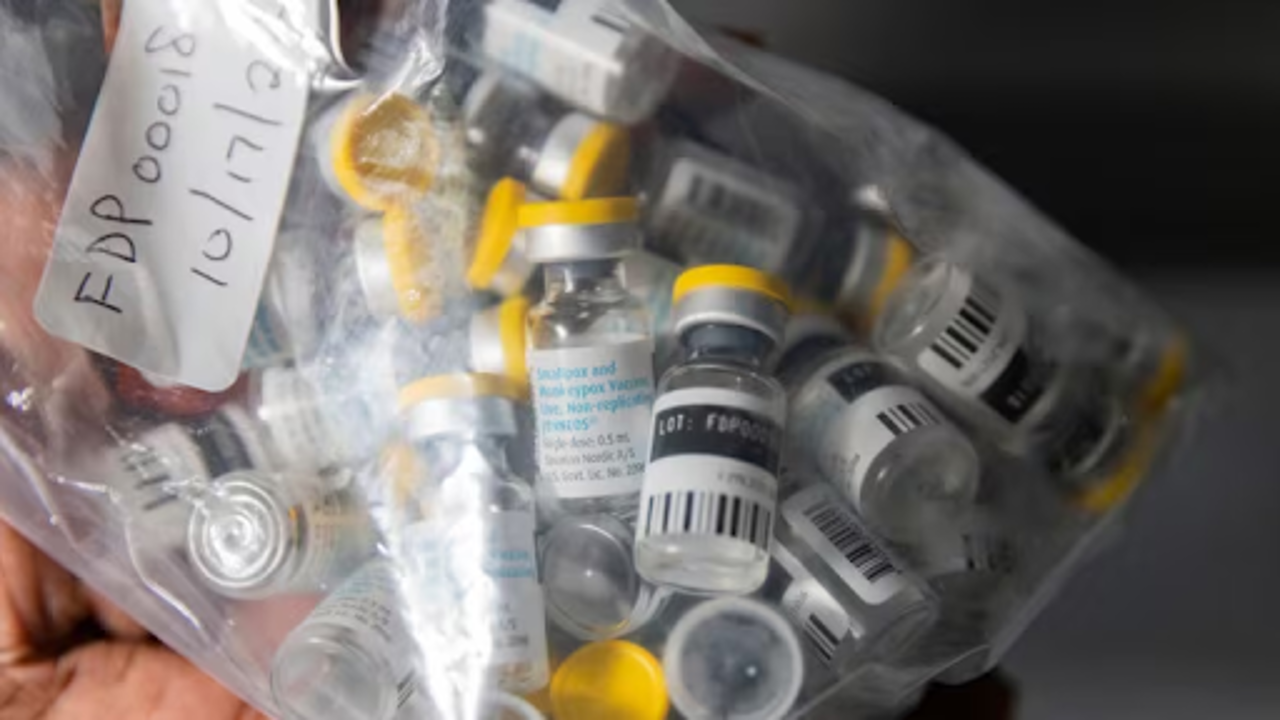
Vials of the single-dose Jynneos mpox vaccine are displayed at a New York vaccination site in August 2022. The Associated Press
Ottawa is intensifying its efforts to combat mpox, previously known as monkeypox, with a new vaccination initiative. Public health officials have reported a strong initial response to the program, indicating that residents are eager to protect themselves against the virus.
Recently, the Centretown health clinic MAX Ottawa announced the availability of 36 vaccination spots. By Monday, these spots were fully booked, and the clinic is now looking into expanding its program to accommodate more people. Similarly, the Sexual Health Clinic on Clarence Street is also providing mpox vaccinations, with details available on the Ottawa Public Health (OPH) website.
The urgency of this vaccination drive follows a recent declaration by the World Health Organization (WHO) on August 14, which labelled the mpox outbreak as a public health emergency of international concern. This declaration came just a day after the Africa Centres for Disease Control and Prevention issued a similar warning. Mpox is known to cause painful rashes and lesions, and in severe cases, it can lead to serious illness or death.
Family physician and clinical researcher Iris Gorinfinkel highlighted the growing concerns about mpox, particularly a new and more dangerous strain. According to Gorinfinkel, last year’s strain was relatively mild, but the current strain, clade 1b, is much more severe, with a death rate of one in 30 infections. This strain has spread to several African countries, including Rwanda, Uganda, Kenya, and Burundi, with a particularly alarming impact on children. Garfinkel noted that three in five cases are in children under 15, with some infants as young as two weeks old affected.
Despite these troubling developments abroad, the latest strain has not yet been reported in Canada, according to the Public Health Agency of Canada. Ottawa Public Health confirmed five cases of mpox in the city this year, with the most recent case reported in May. While this number doesn’t indicate a significant local outbreak, OPH remains vigilant and advises those at risk to get vaccinated.
A nurse collects a sample from a child suspected of having mpox at a treatment center in Congo, in July 2024. Reuters
The mpox vaccine program in Ottawa aligns with guidelines from the Ontario Ministry of Health, which recommends a second dose of the vaccine 28 days after the first. The guidelines emphasize that mpox can affect anyone who comes into close contact with an infected person, regardless of their characteristics.
Adam Awad, the executive director of MAX Ottawa, praised the community’s swift response to the vaccination initiative. He expressed optimism that this proactive approach could help manage a global health issue locally. Vaccinations at the Cooper Street Health Center are set to begin Tuesday, and discussions are underway to secure additional vaccine doses and open more appointment slots.
Awad highlighted the importance of staying prepared for global health threats, noting that local actions can have significant impacts on broader health challenges. For now, those interested in getting vaccinated are encouraged to contact Ottawa Public Health to book an appointment.















